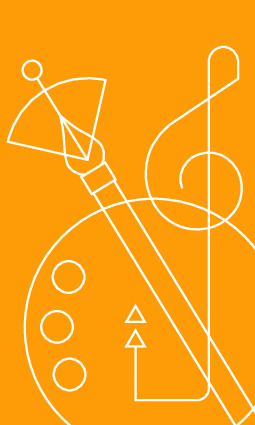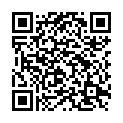|
|
|
| Module code: MAKM-230 |
|
|
4S (4 hours per week) |
|
6 |
| Semester: 2 |
| Mandatory course: yes |
Language of instruction:
German |
Assessment:
The type and duration of the examination for the selected topic are specified in the module handbook.
[updated 24.09.2020]
|
Exam recurrence:
The information regarding exam recurrence is found within the exam policy of the study programme (ASPO).
|
MAKM-230 (P430-0039) Cultural Management, Master, ASPO 01.04.2020
, semester 2, mandatory course
|
60 class hours (= 45 clock hours) over a 15-week period.
The total student study time is 180 hours (equivalent to 6 ECTS credits).
There are therefore 135 hours available for class preparation and follow-up work and exam preparation.
|
Recommended prerequisites (modules):
MAKM-130 Cultural Policy and Cultural Sociology
[updated 28.05.2025]
|
Recommended as prerequisite for:
|
Module coordinator:
Prof. Dr. Jörg Abbing |
Lecturer:
Dozierende des Studiengangs
[updated 28.05.2025]
|
Learning outcomes:
Learning outcomes/skills for Didactics: After successfully completing this module, students will:
_ be able to analyze and evaluate teaching and learning processes in musical instrument and singing lessons
_ be able to explain the theoretical backgrounds of cultural educational work and assess their relevance for practice
Learning outcomes/skills for the concert project: After successfully completing this module, students will:
_ be able to assess the organizational prerequisites for the implementation of a concert-based educational project and ensure that they are adequately taken into account in concrete planning processes
_ be able to take didactic principles of concert pedagogy into account when planning a concert-based educational project
_ be able to perform simple acting or organizational tasks during the performance of a concert with an educational concept
Learning outcomes/skills for Music Pedagogy: After successfully completing this module, students will:
_ be able to create contexts for related scientific discourses, as well as for real teaching situations based on a well-founded overview of a specific topic in music pedagogy
_ be able to independently explore and differentiate certain aspects of the topic,
_ be able to assess the practical relevance of the topic and develop concrete options for action. Learning outcomes/skills for Didactics of Adult Education 1
After successfully completing this module, students will:
_ be able to set their potential occupational field in relation to their own inclinations and abilities with the help of an overview of various fields of action relevant to music education and adult education institutions
_ be able to reflect on basic psychological and didactic problems in further education and training, as well as in university teaching
_ be able to apply a repertoire of appropriate methods to different target groups
Learning outcomes/skills for Didactics of Adult Education 2 After successfully completing this module, students will:
_ be able to systematically observe and evaluate courses in adult education
_ be able to reflect upon their own role(s) as lecturers
_ be able to apply their communicative competence in dialogic and virtual dialogic communication processes (listening comprehension/listening and speech thinking/speaking)
_ be able to design and implement a project
_ be able to didactically analyze reference works and select suitable methods for communicating them to different target groups
be able to assess the pros and cons of decisions using structured documentation and reflections.Learning outcomes/skills for the music project:
After successfully completing this module, students will:
_ be able to design and implement a project
_ be able to didactically analyze reference works and select suitable methods for communicating them to different target groups
_ be able to assess the pros and cons of decisions using structured documentation and reflections.
[updated 24.09.2020]
|
Module content:
Content for Didactics:
_ Observation and post-evaluation of demonstration lessons in instrumental and vocal pedagogy with different target groups and in different genres.
_ Theoretical foundations of cultural education work in different settings, as well as with different target groups and different genres, especially in the areas of instrumental and vocal pedagogy
Content for the concert project:
_ Preparation and presentation of a concert with a pedagogical orientation (concert or music pedagogical project)
Content of the advanced seminar on music pedagogy:
_ Overview of the chosen topic on the basis of representative literature and individual thoughts and theories
_ Deepening, differentiating and discussing selected aspects of the topic
_ Practical relevance of the content taught in "Didactics of Adult Education 1"
_ Structures, contexts, programs and ideological orientation of relevant adult education institutions
_ Requirements for adult education and methods of implementation
_ Self-perception and external perception
_ Psychology of ageing
_Content of "Didactics of Adult Education 2"
_ Methods of empirical educational research, communication theories Content of the music pedagogical project:
_ Planning, implementation, documentation and reflection of a music education project in cooperation with surrounding schools or music schools.
[updated 24.09.2020]
|
Teaching methods/Media:
_ Seminar
_ Project (concert project)
[updated 24.09.2020]
|
Recommended or required reading:
_ Brandstätter, U. (2004): Bildende Kunst und Musik im Dialog. Ästhetische, zeichentheoretische und wahrnehmungspsychologische Überlegungen zu einem kunstspartenübergreifenden Konzept ästhetischer Bildung, Augsburg: Wissner.
_ Brandstätter, U. (2013): Erkenntnis durch Kunst. Theorie und Praxis der ästhetischen Transformation, Wien: Böhlau.
_ Stiller, B. (2008): Erlebnisraum Konzert. Prozesse der Musikvermittlung in Konzerten für Kinder, Regensburg: ConBrio.
_ Wimmer, C. (2010): Musikvermittlung im Kontext. Impulse _ Strategien _ Berufsfelder, Regensburg: ConBrio.
[updated 24.09.2020]
|


